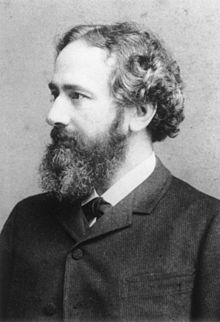Lujo Brentano
| Lujo Brentano | |
|---|---|
 |
|
| Born |
18 December 1844 Aschaffenburg, Germany |
| Died | 9 September 1931 (aged 86) München, Germany |
| Fields | Economist |
| Institutions | University of Munich |
| Alma mater |
University of Göttingen (Ph.D.) Trinity College Dublin |
| Doctoral advisor |
Adolph Wagner (Habitilation) Johann Alfons Renatus von Helferich (Ph.D.) |
| Doctoral students |
Theodor Heuss Robert Kuczynski Werner Hegemann Fukuda Tokuzō Hans Ehrenberg |
Ludwig Joseph "Lujo" Brentano (/brɛnˈtɑːnoʊ/; German: [bʀɛnˈtaːno]; 18 December 1844 – 9 September 1931) was an eminent German economist and social reformer.
Lujo Brentano, born in Aschaffenburg into one of the most distinguished German-Catholic intellectual families (originally of Italian descent), attended school in Augsburg and Aschaffenburg. He studied in Dublin (Trinity College), Münster, Munich, Heidelberg (doctorate in law), Würzburg, Göttingen (doctorate in economics), and Berlin (habilitation in economics, 1871).
He was a professor of economics and state sciences at the universities of Breslau, Strasbourg, Vienna, Leipzig, and most importantly, Munich (1891–1914). With Ernst Engel, the statistician, he made an investigation of the English trade unions. In 1914, he signed the Manifesto of the Ninety-Three. After the revolution of November 1918, he served in prime minister Kurt Eisner's government as People's Commissar (Minister) for Trade, but only for some days in December 1918.
...
Wikipedia
